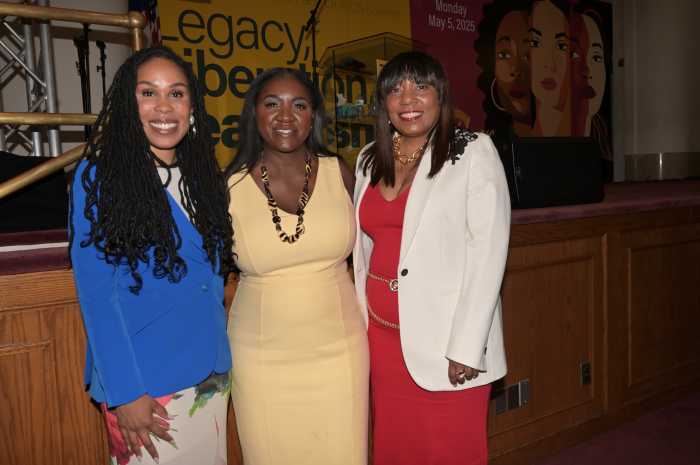New York City has long been a global beacon for LGBTQ+ people. As of 2023, about 907,000 adults in our city (14%) identified as LGBTQ+ — nearly 50% higher than the national average of 10%. Yet even here, the home of Stonewall, LGBTQ+ New Yorkers face greater mental health challenges and burdens than their straight and cisgender neighbors.
A recent New York City Health Department survey reveals a sobering reality. LGBTQ+ New Yorkers suffer higher levels of serious psychological distress than their heterosexual, cisgender counterparts. While 7% of heterosexual adults experience such distress, this number jumps to 12% for gay or lesbian adults, 16% for bisexual adults, and 23% for other sexual orientations.
Transgender, gender non-conforming, and non-binary New Yorkers weather two to three times higher levels of serious distress than cisgender adults. The data reveals other inequities. Nearly half of transgender adults and three in four non-binary or genderqueer adults report feeling cut off or distant from others. This sense of isolation, a known contributor to mental illness, exacerbates existing vulnerabilities.
But there is good news. The majority of transgender, non-binary, and gender non-conforming adults with high levels of serious psychological distress receive mental health treatment.
Age and race play a role in the mental health of LGBTQ+ New Yorkers. Younger LGBTQ+ individuals confront unique challenges as they navigate their path to identity and acceptance. Among sexual minorities, those who are between 18 and 24 years old report the highest prevalence of serious psychological distress and social isolation. Latino adults who identify as sexual minorities experience higher levels of distress and isolation compared to their white, Black, and Asian/Pacific Islander peers. This inequity indicates the ongoing need for culturally responsive and targeted interventions.
The numbers reflect real-life systemic discrimination and stigma, and the daily burden of navigating a society that often fails to fully embrace LGBTQ+ people. Recent surges in anti-LGBTQ+ legislation across the country and attacks on gender-affirming care within our hospitals add a layer of anxiety and fear that deeply affects mental health.
New York City is committed to the vital support that this moment requires. We vow to continue to:
- Expand access to culturally responsive mental health services, specifically targeting younger and Latino LGBTQ+ individuals.
- Invest in community-based programs that address social isolation and provide peer support networks.
- Strengthen anti-discrimination policies in housing, employment, and health care to address the root causes of mental health disparities.
- Increase training for mental health providers to ensure they are equipped to provide affirming and effective care to LGBTQ+ individuals.
- Create safe and welcoming environments for all LGBTQ+ New Yorkers.
The NYC Health Department maintains the NYC Health Map, which includes an online directory of LGBTQ+ knowledgeable mental health providers and LGBTQ+ health resources. We also provide free, confidential mental health and substance use support for you and your loved ones. Trained counselors are available 24/7 by phone in over 200 languages and by text and chat services in English and Spanish. Call or text 988 or chat online at nyc.gov/988, anytime.
The Mayor’s Office for the Prevention of Hate Crimes implements community-driven strategies to address biases fueling hate crimes and foster healing for victims and communities. In NYC, it is illegal to discriminate on the basis of a person’s sexual orientation, gender identity, or gender expression in public spaces, including in health care settings. New Yorkers who have experienced discrimination based on sexual orientation or gender identity can file a complaint with the NYC Commission on Human Rights.
You can read more about our commitment to support LGBTQ+ New Yorkers and promote inclusive, gender-affirming services on our website. You can also learn more by reading the LGBTQ Health Care Bill of Rights.
As a clinician and forensic psychologist, I have personally seen the benefits when we connect young people and adults to organizations that provide the LGBTQ+ community not only with treatment but that also promote health and wellness as prevention. For example, I worked with a 17-year-old youth who was transitioning and found themselves in county jail and suicidal. We worked to get them out of the male section in city jail and back into the community, where they were connected to organizations that could offer further assistance. This young person found community, accepted treatment for addiction, and eventually went back to finish the GED and on to college.
Despite daunting policy threats at the state and federal level, a record high number of cities — including NYC — offer laws, policies, and services that support LGBTQ+ equality. Now more than ever, it’s important that our home city reaffirm and reinforce our commitment to not only protect LGBTQ+ people, but to create a place where everyone can flourish.



































